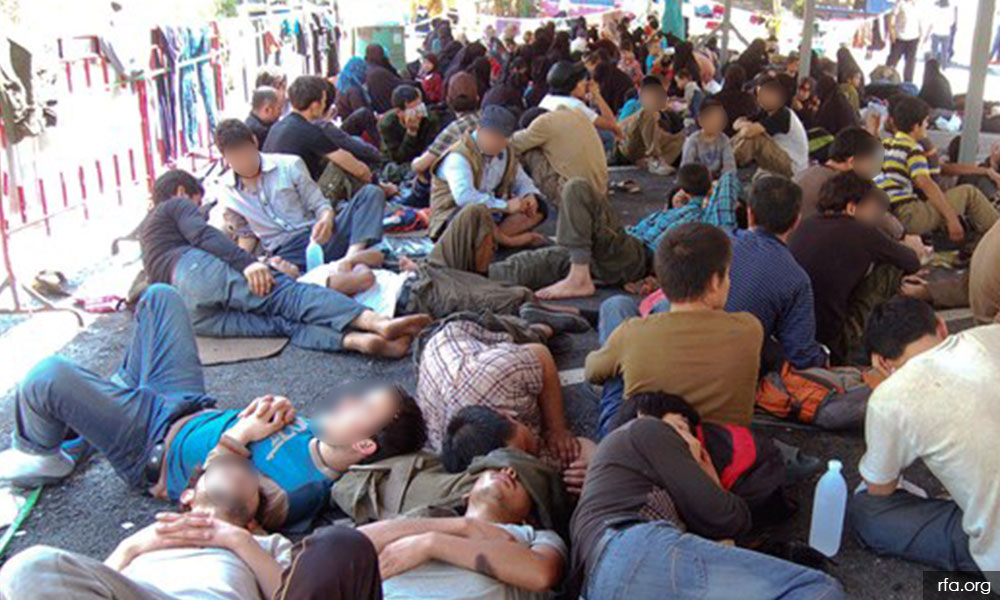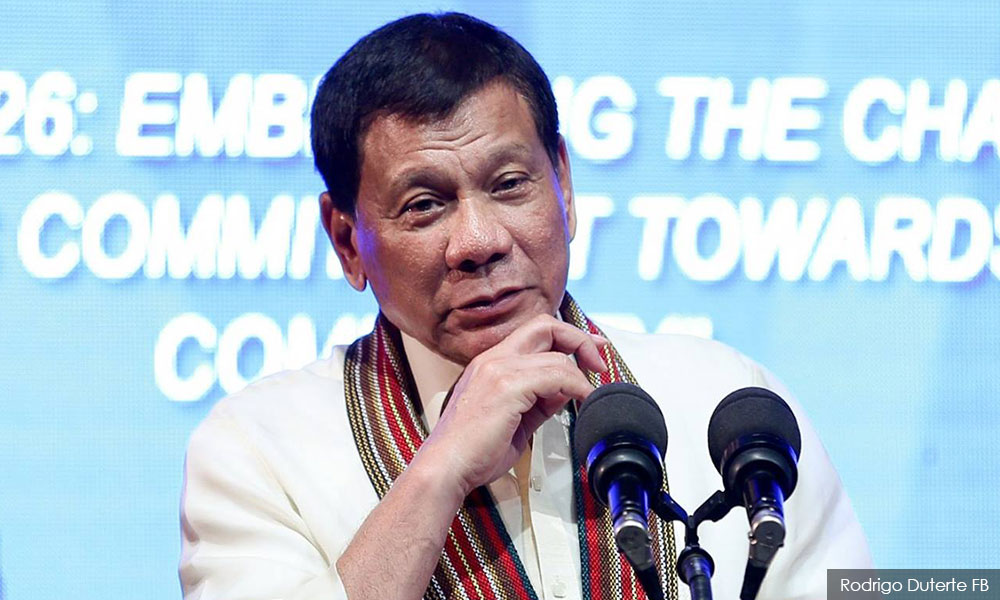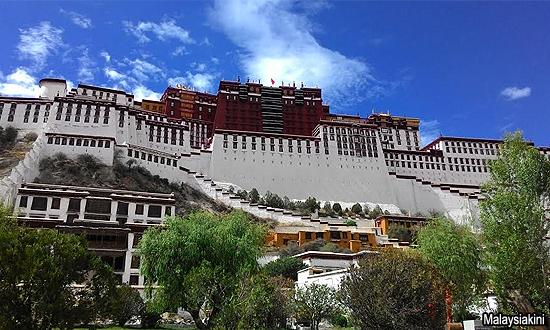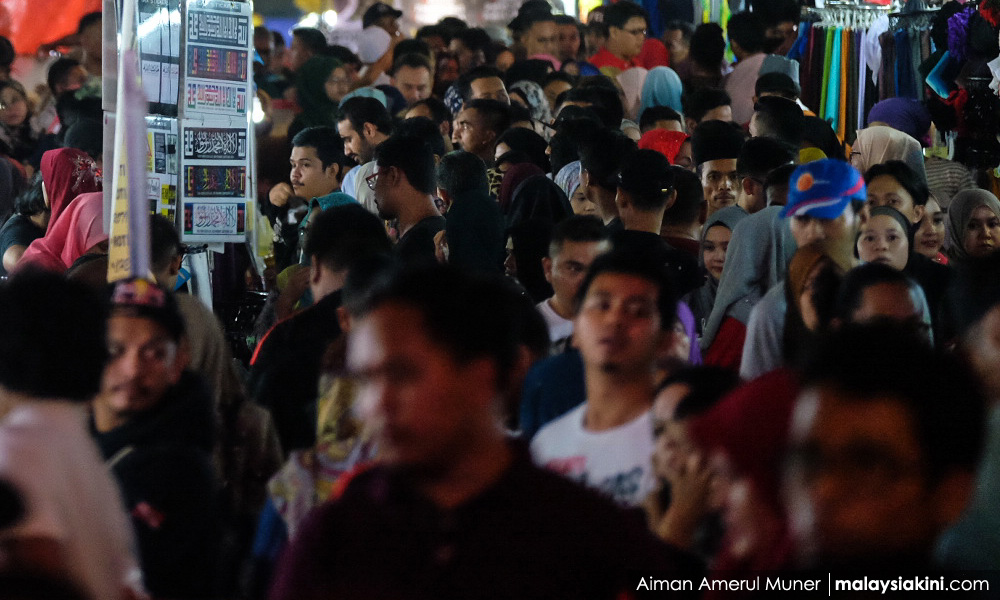
Published by Malaysiakini, images from Malaysiakini.
Take away the invention of paper, gunpowder and the abacus, three of the finest contributions of the Chinese civilisation to humankind, there is a motley collection of philosophical systems in China that makes China one of the most progressive and advanced entities in the world.
Indeed, it was the late Dr Lucian Pye, a political scientist at MIT, who famously said that “China was a civilisation pretending to be a state.” Pye wasn’t making the observation in jest. He was simply commenting in a matter-of-factly manner.
The problem with China is it switches on and off, with this civilisational awareness.
To the outside world, China has urged at least 68 countries to be a part of its “Belt and Road Initiative” (BRI). Thus from October 2013 onwards, President Xi Jin Ping fired the first salvo in Almaty, Kazakhstan, followed by a second boost by urging Indonesia to be a part of the BRI too.
Surely, China could not have missed the plain fact that these were two Muslim countries that have renounced Communism in all its forms.
Yet, regardless of whether it was Kazakhstan or Indonesia, the leaders of these two countries dealt with China, alas, as a “state” even as a civilisation, too, since China was propagating the importance of restoring the ancient Silk Road.
For the lack of better word, these two countries, including Malaysia, adopted the Confucian concept of “Chung Yung” or “the Middle Way.”
Instead of trying to distance themselves from China or BRI, Kazakhstan, Indonesia, and Malaysia, three of the most progressive Muslim countries the Islamic world has yet witnessed, sought to engage China, indeed, to give President Xi Jin Ping’s grand strategy a huge boost.
While it is true that China has pledged close to US$100 billion to fund the Asian Infrastructure Investment Bank (AIIB) with another US$50 billion for the Silk Road Fund, it is also true that some countries who took the loans have found themselves unable to repay these debts.
Sri Lanka, Maldives, Pakistan, potentially and Tonga in the Pacific, are now on this list. Even Venezuela, which falls out of the scope of BRI, has faced immense headwinds. Caracas has had to make good on its debt commitments to China by way of bartering their oil exports back to China.
Beijing, for the lack of better word, isn’t giving cost-free financial assistance and loans. They carry a huge impact on the recipient countries.

Even the Philippines, which was promised a total of US$2.6 billion worth of Chinese development aid – largely to build up Mindanao and Manila – has yet to see the Chinese money rolling in. When the money does not come in, President Roberto Duterte is subsequently accused by his political opponents and the people of having been misled by the Chinese.
The political cost to Duterte, once again, is huge, as his support would begin to bleed as long as the Chinese financial support does not come flowing as had been promised.
In Malaysia, one of our own infamous citizens, Jho Low, seems to be cowering under the protection of China. Some Chinese shell companies, if the accounts of the Ministry of Finance in Malaysia are to be taken at face value, have been used as a scheme to launder the money of 1MDB.
In spite of the high tolerance of China’s “dream”, “design” and “development” priorities, many Muslim countries are now expected to just sit and watch – with their mouths shut – when up to one million Uyghurs in China are subject to “re-education” camps.
‘Made in China’
The authorities in Xinjiang (known earlier as Urumqi) appear to challenge the habits and lifestyles of local Muslims wholesale, by fighting what they called “pan-halal” tendencies.
Muslims have heard of “kosher” which is Jewish dietary preparations consistent with Islamic standards but none have ever heard of “pan-halal” habits.
Thus it must surely come as a shock to more than 1.8 billion Muslims the world over that their potential sensitivity to the sources of their food and consumer items can now be regarded in China as something verging on “extremist tendencies.” Does this mean Muslims are not welcome in China?
This is odd because as Japan is preparing for the Tokyo Olympics 2020, the authorities in Japan have asked more Islamic countries, especially Malaysia, to guide them on how to serve halal food. Beijing has hosted the 2008 Olympics before and the 2010 Shanghai World Exhibition.
In fact, “Made in China” is practically the three word that keeps the world of manufacturing – which includes canned food – thriving and growing from 1976 onwards when China opened up to the rest of the world. How can China now be biting the hand that feeds it?
In all the confusion, Muslims are told to find the Middle Way. This is known as the Aristotelian Way of the Mean too. China, as mentioned, had earlier been ingrained with the concept in the form of “Chung Yung”. In fact, Jewish philosopher, Moses Maimonides once affirmed that when all laws failed, the one principle to guide anyone is “to not do others what you do not want others to do to you” – which again is a Confucian concept familiar to China.

“Pan-halal,” is befuddling and confusing, since it is an extra-judicial attempt to ask all Muslims in Xinjiang (Urumqi) and China to conform to the diktat of the Chinese Communist Party.
But how can those countries in the Islamic world, especially Turkey, that wants to help China in BRI, do exactly that when China isn’t friendly to its Muslim brethren? It is time for China to give the world some clear answers. And, the clarity cannot morph into scripted answers on how the campaign to stop “pan-halal” habits is a way to contain “separatism,” “secessionism,” and “splittism”; also known in China as “the three evils.”
The “three evils” are not a crucible supported by any member state in BRI, as all are aware of the extent to which these three tendencies will introduce chaos to the utmost degree. But no one wants to see Islamophobia in China too, especially one that is drummed up by the local party cadres in Xinjiang (Urumqi). The sooner China respects Muslims within its own confines and the larger Islamic world, the better.
By this token, contrary to what was reported in The Star Malaysia, that Malaysia is ‘defying’ China by releasing 11 Turkic Uyghur from detention, and allowing them to fly to Turkey, it should be stated that Malaysia is a country that follows the rule of law since the electoral turn over of the government on May 9, 2018.
If China should wish to challenge the release, they are welcome to do so in a court of law too in Malaysia.
The world sure hopes we are not witnessing another Tibet in progress. This time in Urumqi or Xinjiang.
Dr. Rais Hussin is President & CEO of EMIR Research, an independent think tank focused on strategic policy recommendations based on rigorous research.

